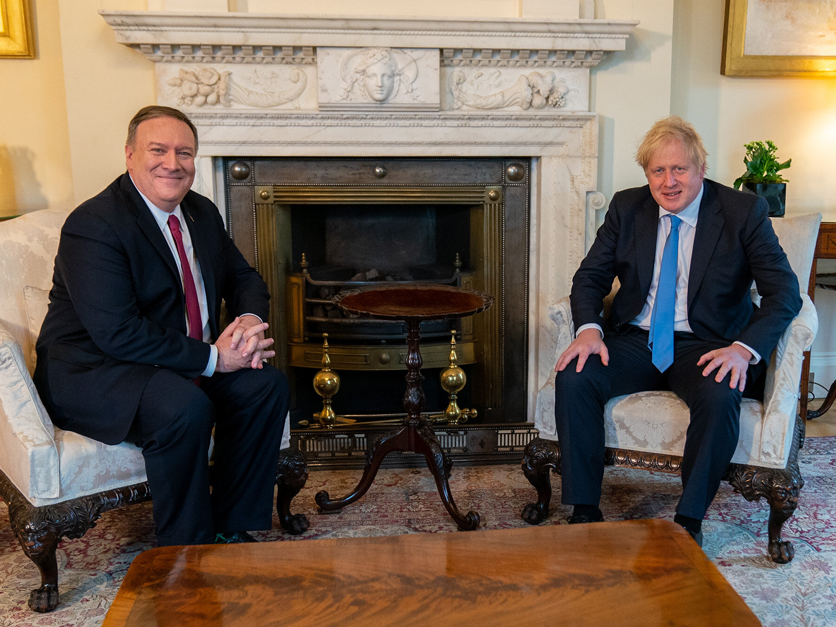The United Kingdom, now free from the European Union, published negotiating objectives Monday for a free trade agreement with the U.S., and improving agriculture imports and exports will be key during talks that are expected to begin in the next several weeks, British government officials said.
“Publication of our objectives is a clear statement that the U.K. is ready to start negotiations on an ambitious free trade agreement with the U.S.,” British Prime Minister Boris Johnson said in a statement. “This offers the opportunity to deepen our economic engagement in key areas such as agriculture, business services and advanced manufacturing and to lead the world in setting new standards for digital trade and intellectual property protection.”
The EU is keen on keeping the U.K. beholden to its agricultural restrictions on biotechnology, growth hormones, ractopamine and peracetic acid rinses, but British officials say they are willing to negotiate. The U.S. has been unable to export poultry to the U.K. under European rules that ban the antimicrobial rinses used by U.S. producers. Other European barriers block most U.S. beef and pork.
Interested in more coverage and insights? Receive a free month of Agri-Pulse or Agri-Pulse West by clicking here.
The U.K., however, does not have to follow the EU's lead on regulations when it comes to agriculture or other issues, a British government official told reporters Monday. The British are determined to make their own regulations and accept deals on their own terms, free from the influence of Europe’s way of doing things, the official said.
The British official also stressed that the U.K. knows that, going into talks with the U.S., it will have to increase the country’s market access for U.S. farm goods or the U.S. Congress will not approve of any trade pact.
Still, there may be some pushback from British non-government organizations and the public in general. The government acknowledged that it received public feedback in which “concerns were raised” about U.S. standards for GMOs, growth hormones and pesticides.
One U.S. farm commodity that stands to benefit from increased access to the U.K. is rice. The U.K., under European rules, maintains a 38,000-metric-ton tariff-rate quota. Outside of that, U.S. milled rice is taxed at the equivalent of about $117 to $142 per metric ton. That's about a 20% tariff, and getting rid of it could sharply boost U.S. exports, according to the USA Rice Federation.
For more news, go to www.Agri-Pulse.com


